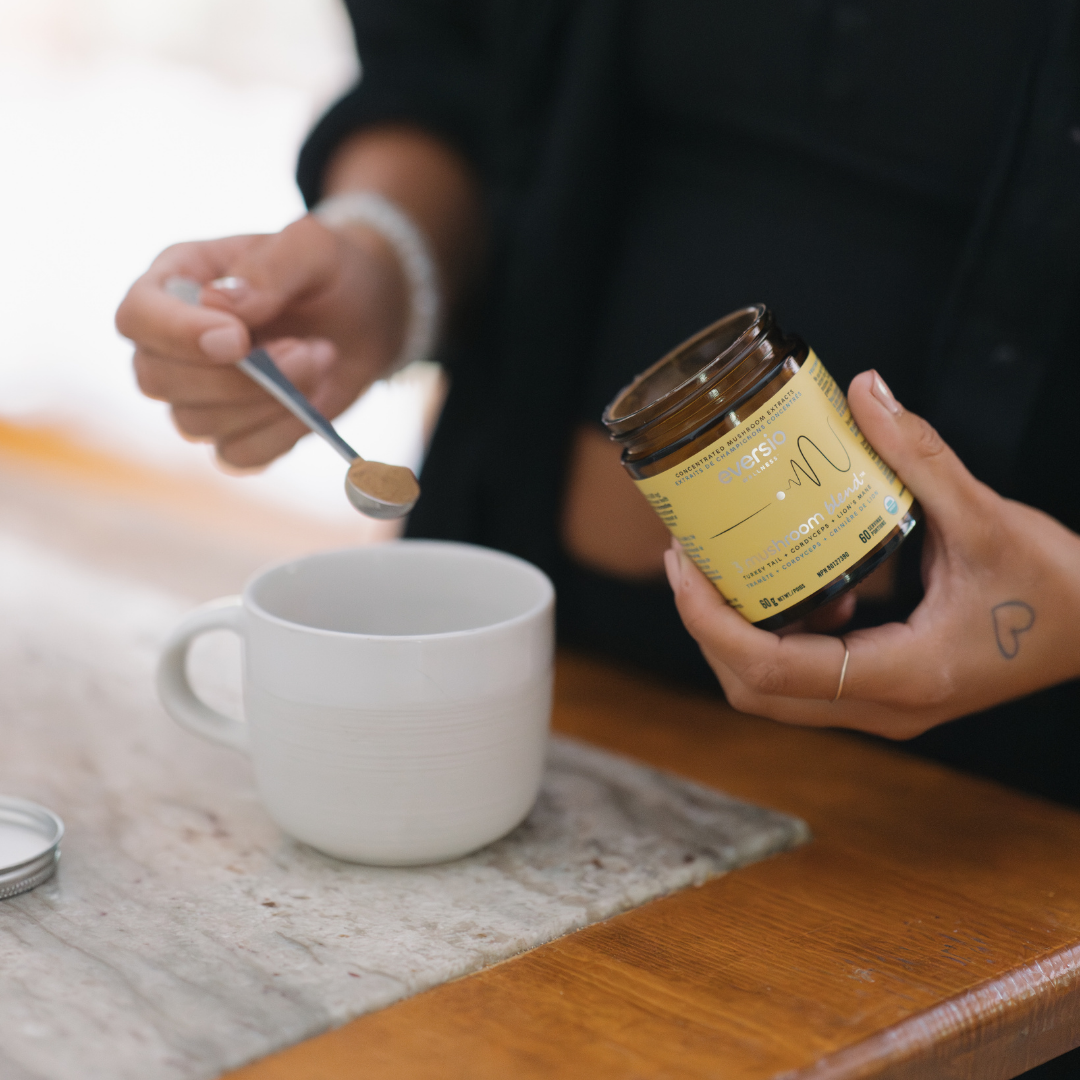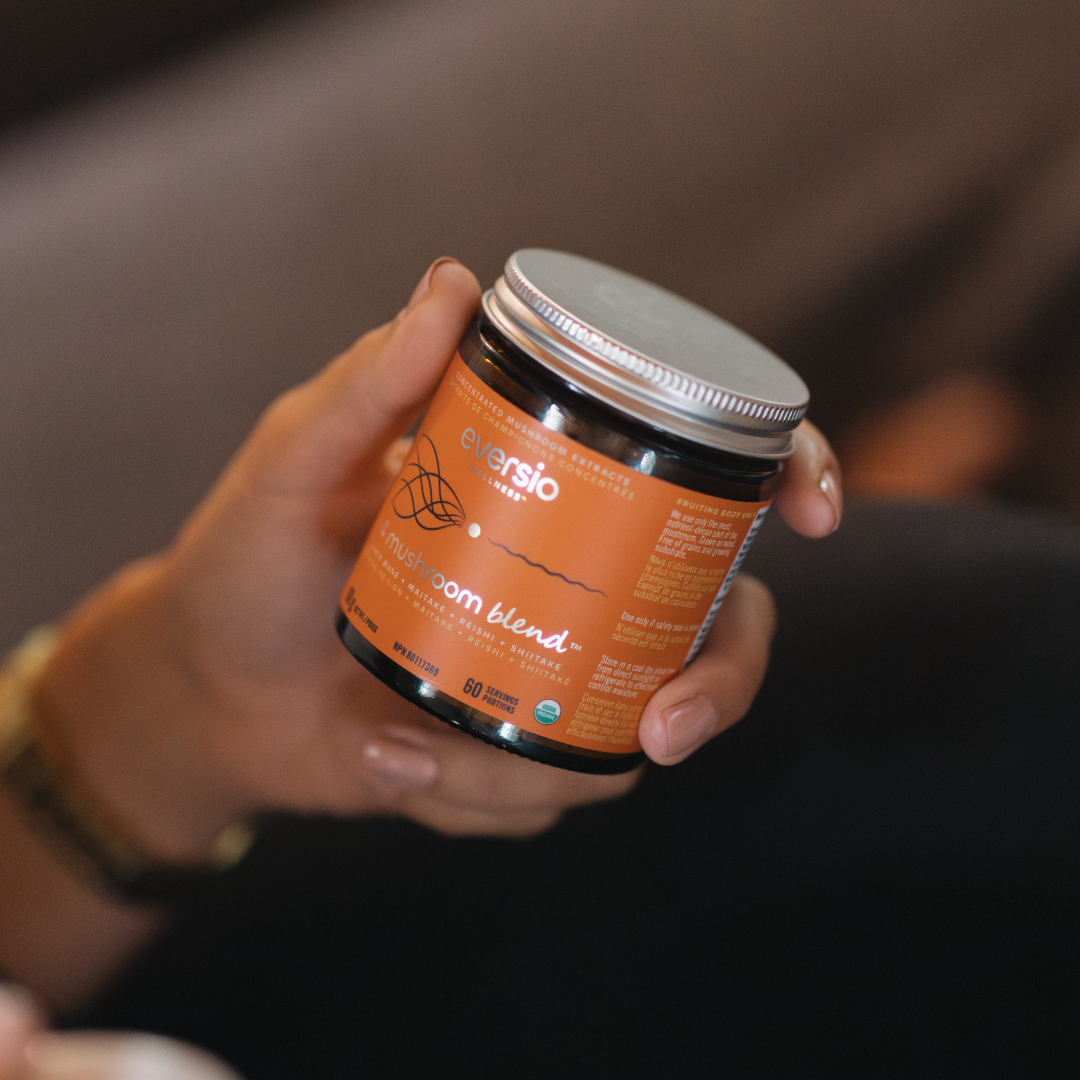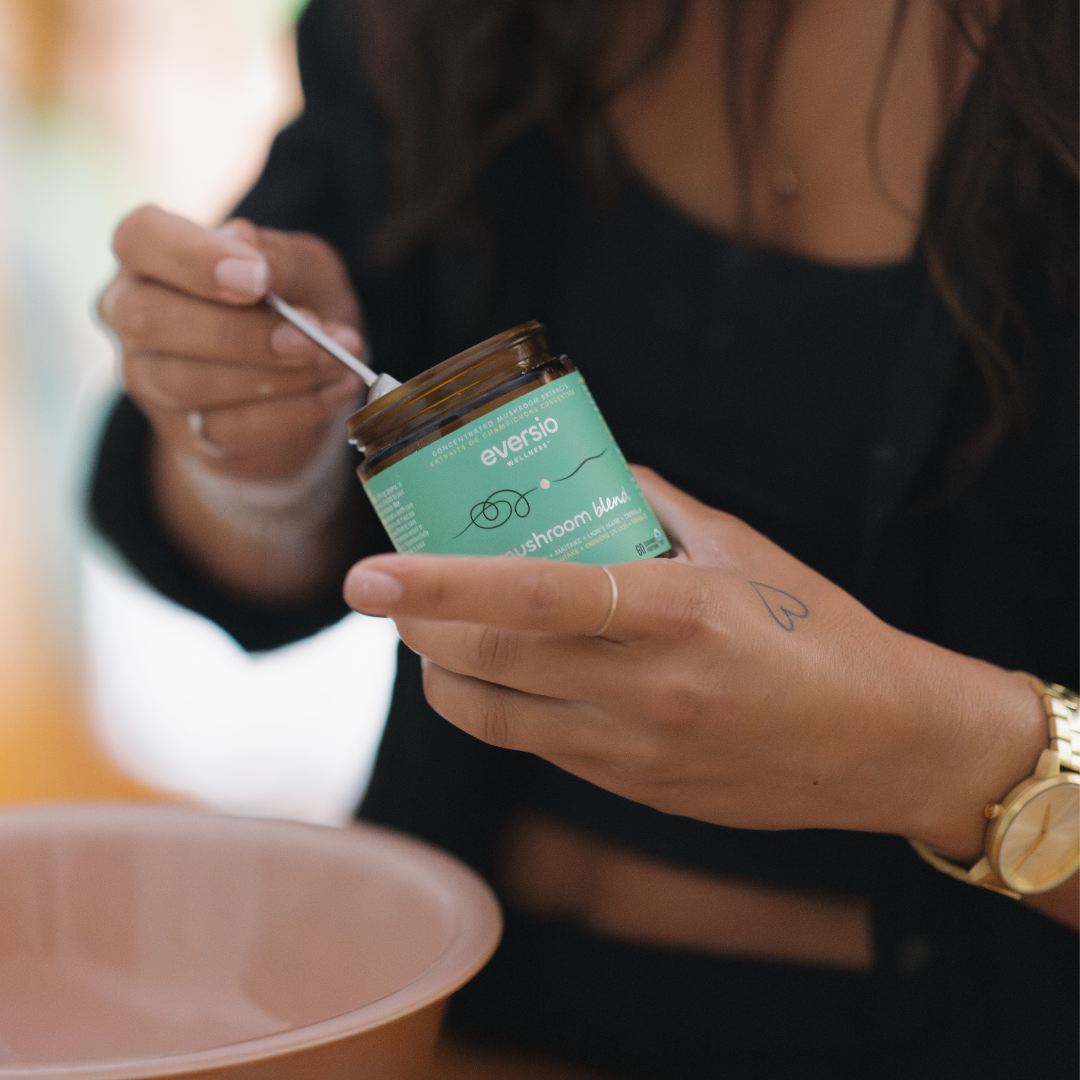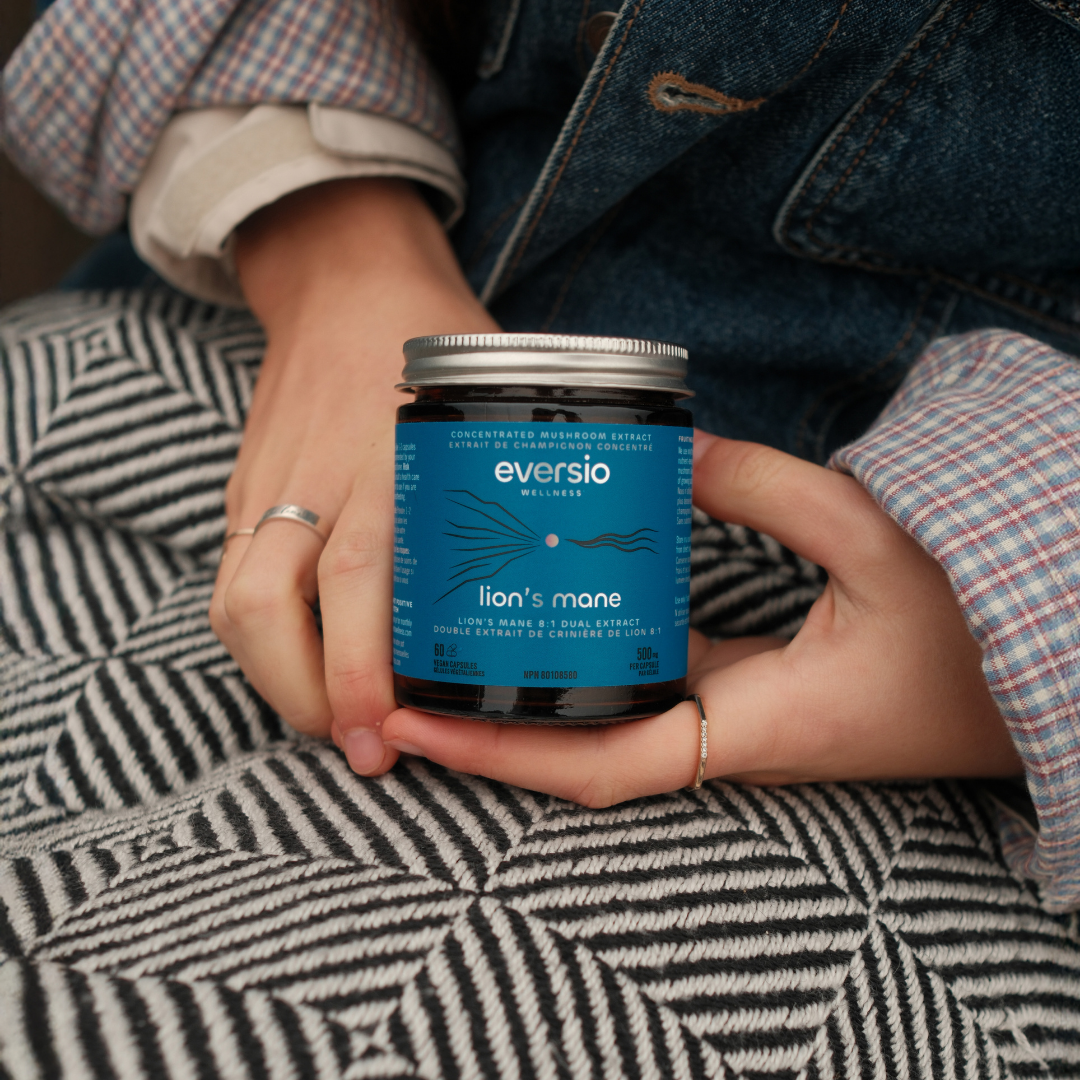February 5, 2024 | Dr. Silvana Jakupovic, ND
Mushrooms are a versatile food that have been enjoyed for thousands of years in cultures around the world. Oyster mushrooms (Pleurotus ostreatus) are a particularly popular variety of functional mushrooms due to their mild flavor and delicate texture. But did you know that oyster mushrooms are also packed with nutrients and offer several health benefits? In this article, we'll explore the benefits of oyster mushrooms, including their immune-boosting properties, antioxidant content, and potential anti-cancer effects. We'll also take a look at some creative ways to incorporate oyster mushrooms into your diet for a healthier, more vibrant life.
What is an Oyster Mushroom?
Oyster mushrooms (Pleurotus ostreatus) are a type of edible fungi and healthy mushroom that belong to the Pleurotaceae family [1]. Oyster mushroom identification is characterized by their shell-like appearance and range in color from pale gray to dark brown. Oyster mushrooms are known for their delicate texture and mild flavor, making them a popular ingredient in a variety of dishes, including stir-fries, soups, and salads [2]. With high oyster mushroom nutritional value, they are rich in nutrients, including protein, vitamins B and D, and antioxidants [3]
What Are the Oyster Mushroom Benefits?
Oyster mushrooms (Pleurotus ostreatus) are not only delicious, but also offer several health benefits. They are low in calories, fat, and sodium, making them a great addition to a balanced diet [2]. Oyster mushrooms contain beta-glucans, which have been shown to have immune-boosting properties [4]. They are also rich in antioxidants, including ergothioneine, which may help protect against oxidative stress and inflammation [5]. Additionally, oyster mushrooms contain high levels of protein and are a good source of vitamins B and D [3]. Some studies suggest that oyster mushrooms may also have potential anti-cancer properties, although more research is needed to confirm these findings [6]. Overall, oyster mushrooms are a versatile and nutritious food that can be enjoyed in a variety of dishes.

What are the Health Benefits of an Oyster Mushroom?
1. Boosts Immune System
Oyster mushrooms (Pleurotus ostreatus) have been shown to boost the immune system in several ways. First, they contain beta-glucans, which are complex sugars that can stimulate the immune system by activating immune cells such as macrophages and natural killer cells [7,8]. These immune cells play a key role in fighting infections and cancer [9].
Oyster mushrooms also contain polysaccharides, which are another type of complex sugar. Polysaccharides have been shown to stimulate the production of cytokines, which are proteins that regulate the immune response [10]. One study found that polysaccharides extracted from oyster mushrooms increased the production of several cytokines, including interleukin-1 beta and tumor necrosis factor-alpha [11].
In addition to these mechanisms, oyster mushrooms contain ergothioneine, a powerful antioxidant that has been shown to have immune-boosting properties [12]. Ergothioneine may help to reduce oxidative stress in immune cells, which can enhance their function and promote a stronger immune response [13].
2. Reduces Inflammation
Oyster mushrooms (Pleurotus ostreatus) have been shown to possess anti-inflammatory properties due to their unique combination of bioactive compounds. One of the key compounds responsible for this effect is ergothioneine, which is a potent antioxidant and anti-inflammatory agent [12,14]. Ergothioneine has been shown to reduce the production of inflammatory cytokines such as interleukin-6 and tumor necrosis factor-alpha in immune cells, thereby reducing inflammation [13,15].
In addition to ergothioneine, oyster mushrooms contain other bioactive compounds such as phenolic compounds and polysaccharides that have been shown to possess anti-inflammatory properties [16,17]. Phenolic compounds are antioxidants that can neutralize free radicals and prevent oxidative stress, which is a major contributor to inflammation [18]. Polysaccharides have also been shown to modulate the immune system and reduce inflammation by reducing the production of pro-inflammatory cytokines [19,20].
Another way in which oyster mushrooms can reduce inflammation is by inhibiting the activity of cyclooxygenase (COX) enzymes. COX enzymes are involved in the production of prostaglandins, which are molecules that play a key role in the inflammatory response. By inhibiting COX enzymes, oyster mushrooms can reduce the production of prostaglandins and thereby reduce inflammation [21,22].
3. Anti-Cancer Properties
Oyster mushrooms have also shown promising anti-cancer properties. Studies have found that oyster mushroom extracts may inhibit the growth of cancer cells in vitro and in vivo through various mechanisms of action. Oyster mushroom extracts have been found to increase the expression of pro-apoptotic proteins and decrease the expression of anti-apoptotic proteins in cancer cells [23,24]. Another mechanism is through the inhibition of angiogenesis, which is the formation of new blood vessels that supply nutrients to tumors. Oyster mushroom extracts have been found to inhibit the expression of vascular endothelial growth factor (VEGF), which is a protein that promotes angiogenesis [25]. Additionally, oyster mushroom extracts have been found to enhance the immune system's ability to recognize and destroy cancer cells [26].
4. May Lower Cholesterol
Oyster mushrooms (Pleurotus ostreatus) have been found to have cholesterol-lowering properties due to the presence of bioactive compounds such as lovastatin and beta-glucans. Lovastatin is a type of statin that inhibits the production of cholesterol in the liver by blocking the enzyme HMG-CoA reductase [27]. Beta-glucans, on the other hand, are complex polysaccharides that can lower cholesterol by binding to bile acids in the intestines and reducing their reabsorption [28].
One study found that consuming oyster mushrooms for 30 days significantly reduced total cholesterol levels in hypercholesterolemic rats [29]. Another study found that oyster mushroom extract reduced LDL (low-density lipoprotein) cholesterol and triglyceride levels in mice fed a high-fat diet [30].
5. Contains Powerful Antioxidants
Oyster mushrooms have been found to possess potent antioxidant properties due to their high content of bioactive compounds such as ergothioneine, polysaccharides, flavonoids, and phenolic compounds. Ergothioneine is a unique amino acid that acts as a potent antioxidant by scavenging free radicals and protecting against oxidative stress [31]. Polysaccharides, such as beta-glucans, have been found to be effective antioxidants that reduce inflammation and scavenge free radicals [32].
Flavonoids, such as quercetin, are abundant in oyster mushrooms and have been found to have strong antioxidant properties. They are known to reduce inflammation and have anti-cancer properties [33]. Phenolic compounds found in oyster mushrooms, such as phenolic acids and tannins, are also potent antioxidants that help protect against oxidative stress [34].
Oxidative stress is an imbalance between the production of reactive oxygen species (ROS) and the body's ability to detoxify them. ROS can cause damage to cells and contribute to the development of various diseases such as cancer, diabetes, and cardiovascular diseases. Oyster mushrooms, with their high antioxidant content, have the potential to protect against these diseases by reducing oxidative stress.
6. Defense Against Neurodegenerative Diseases and Supports Brain Function
Oyster mushrooms have been shown to possess neuroprotective properties and may help protect against neurodegenerative diseases such as Alzheimer's and Parkinson's. The mechanism behind this protection is thought to be related to the antioxidant and anti-inflammatory compounds found in oyster mushrooms [35]. Studies have shown that oyster mushrooms contain high levels of ergothioneine, a potent antioxidant that protects against oxidative stress and inflammation in the brain [36]. Additionally, oyster mushrooms contain beta-glucans, which have been shown to have immunomodulatory effects and can help stimulate the immune system to protect against neurological damage [37]. The polysaccharides found in oyster mushrooms have also been shown to have neuroprotective effects by increasing the production of nerve growth factor (NGF) in the brain [38]. NGF is a protein that is essential for the growth and survival of neurons, and its production can be impaired in neurodegenerative diseases. Therefore, the neuroprotective effects of oyster mushrooms are thought to be due to the synergistic effects of these compounds.
7. May Help Regulate Blood Sugar
Oyster mushroom has been suggested to have a potential role in regulating blood sugar levels. A study showed that diabetic rats given oyster mushroom extract had significantly lower levels of fasting blood sugar, total cholesterol, and triglycerides compared to a control group [39]. The mechanisms behind this effect are not yet fully understood, but it has been proposed that oyster mushroom may stimulate insulin secretion and increase insulin sensitivity [40]. One study found that a polysaccharide isolated from oyster mushroom called Pleurotus eryngii (PEP) was able to reduce insulin resistance and improve glucose metabolism in obese mice [41]. Additionally, oyster mushroom has a low glycemic index, meaning it has a minimal impact on blood sugar levels [42].
How to Use Oyster Mushroom Supplements in Your Daily Routine
Oyster mushroom supplements are an excellent addition to your daily routine to support your overall health and wellness. These supplements come in various forms, such as capsules, powders, and extracts, making them easy to incorporate into your daily routine. Here are some ways to use oyster mushroom supplements to get the most out of their health benefits.
1. Take Them as a Daily Supplement
One of the simplest ways to use oyster mushroom supplements is by taking them as a daily supplement. These supplements contain concentrated amounts of the beneficial compounds found in oyster mushrooms, including beta-glucans, polysaccharides, and antioxidants, among others.
2. Add Them to Your Morning Smoothie
Another way to incorporate oyster mushroom supplements into your daily routine is by adding them to your morning smoothie. Simply mix a serving of oyster mushroom powder or extract into your favorite smoothie recipe to give it an added boost of nutrients.
3. Mix Oyster Mushroom Blends into Your Morning Coffee
For those who love their morning coffee, adding oyster mushroom blends can be a great way to incorporate this beneficial supplement into your routine.
4. Add Them into Your Favourite Food Recipes
Oyster mushroom supplements can also be added to your favorite food recipes, such as soups, stews, and sauces. Simply mix a serving of oyster mushroom powder or extract into your oyster mushroom recipe and enjoy the added health benefits.
Where to Buy Oyster Mushroom Extract Blends?
Although the market for functional mushrooms is wide, it is important to be mindful of what is inside of the products you are buying. There are many types of mushrooms, but if you find the words “full spectrum”, “mycelial biomass”, or “extracellular compounds” on the label, this means the product is made from the grain substrate the mushrooms are grown on, and potentially the primordia and fruiting body, all combined and often not in extract form. Full spectrum is often advertised as a beneficial aspect of the product by some companies, but you’d need to consume much more of it to achieve the same benefits as you would from a product containing 100% fruiting body.
Eversio Wellness carries 100% fruiting body only mushroom extracts, and they consistently practice transparency to their consumers by sharing the COAs (Certificate of Analysis) of each product. The COAs reassure consumers that the percentage of compounds that are claimed to be in the products is scientifically confirmed through lab testing. Eversio Wellness currently carries one of the best mushroom blends, the 6 Mushroom Blend, which contains oyster, chaga, tremella, lion’s mane, shiitake, and maitake mushroom extracts in powder form.





















Leave a comment
All comments are moderated before being published.
This site is protected by hCaptcha and the hCaptcha Privacy Policy and Terms of Service apply.